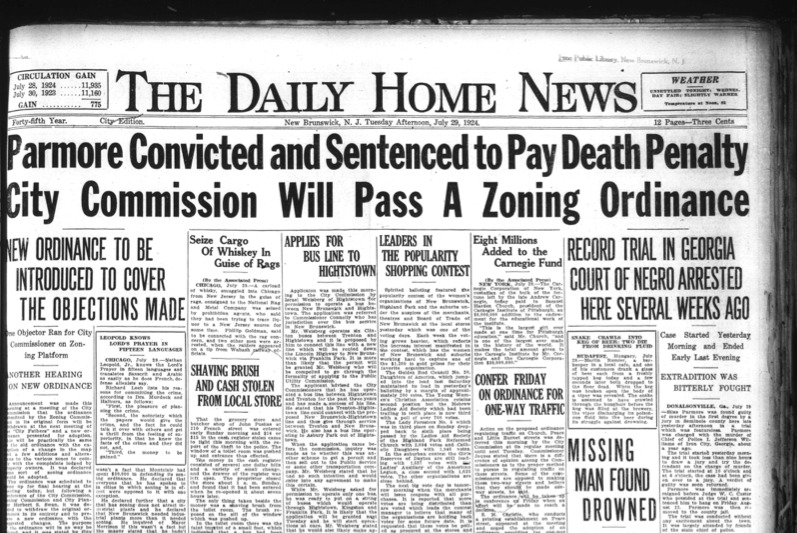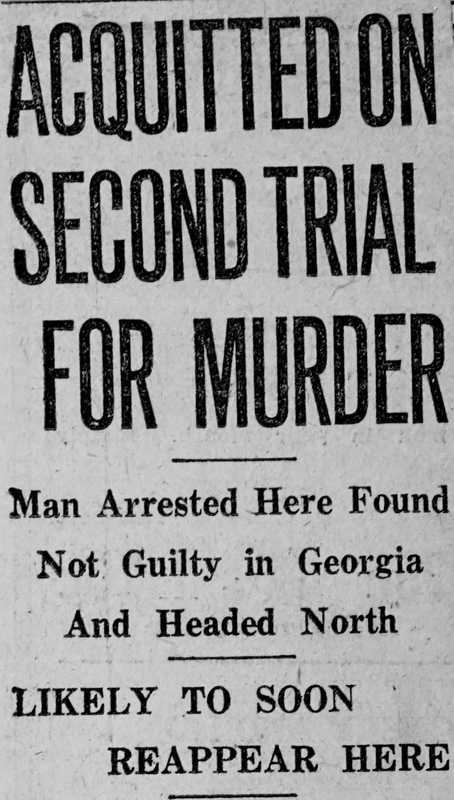Georgia trial and acquittal
Conviction 1924
Once in Georgia, Parmore no longer had the financial and legal support of the New Brunswick NAACP and he was assigned state-appointed attorneys. The entire murder trial, including jury selection, lasted less than nine hours. On July 28, 1924, the all-white, all-male jury found Parmore guilty of first-degree murder and sentenced him to die by hanging. While awaiting his appeal, Parmore wrote to Kalteissen seeking information about the whereabouts of his son Serai. In his letter, Parmore expressed gratitude to the people of New Brunswick, and—seeking their generosity once more—asked if he could be sent new clothes.
Acquittal 1925
Remarkably, when Parmore’s appeal finally came before the Supreme Court of Georgia over a year later, in the fall of 1925, he was acquitted of all charges. Looking back on the New Brunswick NAACP’s involvement, attorney Klemmer Kalteissen recalled, “We fought extradition because we wanted to give the people of Iron City an opportunity to cool their wrath. We believed that if Paramore [sic] was returned to Georgia immediately after his arrest here, he would probably have been hung without a trial.” In addition to its successful delay tactics, the local branch also brought national media attention to the case and forced the governors of New Jersey and Georgia to make public assurances that Parmore would receive a fair trial.
Burnout at the New Brunswick NAACP
Ironically, however, Parmore’s acquittal coincided with the collapse of the New Brunswick NAACP. While Parmore’s case originally concentrated and strengthened the political energies of the nascent organization, the fight ultimately left them financially and emotionally drained. Despite the repeated efforts of the national office to revive interest, the New Brunswick NAACP became dormant in 1925, just as Parmore received his freedom.



